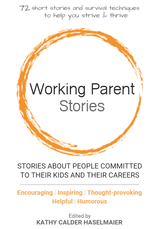|
Submitted by Lacie Martin When you become a parent, financial planning is about more than incidentals. Raising a family requires a specific set of tools and resources to help you establish a solid financial ground that will enable you and your children to reap rewards in the future. Here are some ideas to help you get started on financial planning as a parent and obtain peace of mind. Consider Going Back to School Is a lack of education limiting your income and therefore your lifestyle? If you have been pondering a return to school to increase your overall financial well being and your marketability in the job market, an MBA from a reputable business school is a great option for many. An MBA is a great tool to not only help you get ahead in the corporate job market, but it also will provide you with skills that will help you be a better leader. This training often has positive effects realized outside of the office too. It can even help you become a better parent. Choose the Right Home Loan For new parents who are looking to buy a home for the first time, the process can be overwhelming. From choosing the right neighborhood for your family to negotiating a price with the seller, you’ll have a lot on your plate. You'll probably need to take out a home loan—with various options on the market, where do you begin? The best way to determine which type of home loan is right for you is by doing your research. Keep in mind that you’ll need to look at your financial situation before choosing which loan to take out. For example, if you’re unable to put down 20 percent, then an FHA loan will be ideal. For this type of loan, you don’t need a perfect credit history to qualify. Look Into Life Insurance If something should happen to you, will your family be OK? Life insurance is a financial backup plan for your children in case you are no longer able to provide for them. Dual income households may opt for insurance that covers the income of both partners. Single income families might focus on replacing the primary earner’s income through insurance coverage, as well as the costs associated with the services that would need to be purchase if a stay-at-home parent were to pass. Common insurance options for families include whole life insurance and term life insurance. Whole life insurance can be complicated; it offers different types of coverage for various scenarios. Options include variable, universal, and variable universal coverage. Coverage is lifelong and has an investment component. You don’t pay taxes on the funds as they grow, because the tax is deferred. Plus, death benefits are guaranteed. Term life insurance guarantees a financial payout to your beneficiaries if anything happens to you. Coverage is often more straightforward with term versus whole life insurance, and prices are typically lower. However, term life insurance is for a set period of time instead of your entire life. Terms typically vary between 5 and 30 years. For families, term life insurance can be an excellent investment because you can set the term to coincide with your children’s ages. With either type of life insurance, you should seek a comprehensive quote that considers your unique circumstances and lifestyle needs. Invest in an Emergency Fund What happens if your car needs a costly repair, you encounter an unexpected medical expense or you need to travel unexpectedly to help a friend or family member? Saving money is a crucial part of raising a family, and you may face higher expenses once you welcome a baby into your life. But most Americans with children have more cash in their savings than their single and childless counterparts, according to CNBC. Having enough funds in the bank to cover three to 12 months of living expenses is ideal, according to Chime, and this point has been driven home as the entire world has been dealing with the ramifications of the COVID-19 pandemic. Consider potential emergency scenarios such as health problems, vehicle accidents, and home repairs, and plan accordingly. Plan for Your Child’s Future The best time to start thinking about the cost of your child's education is the minute they're born - or sooner. Saving takes time, and the longer you wait, the harder it becomes. With the rising cost of education today, some parents can expect to foot the bill for as much as $250,000 for their children’s college tuition in the next 20 years. Saving for college can prevent your child from accruing educational loan debt. It can also prevent them from missing out on higher education if they don’t qualify for financial aid because of your income level. For younger children, daycare and preschool costs are another consideration. Fortunately, tax benefits like child tax, child and dependent care, adoption tax, and earned income credits can help defer costs each year. Ultimately, you should also consider who will care for your children if you are unable to. Writing a legal will covers this aspect of planning for your child’s future, including who will act as their legal guardian if something should happen to yo. Don’t Forget About Retirement Planning for retirement is as vital as covering your kids’ well-being via healthcare and insurance. According to the IRS, there are multiple retirement programs with tax benefits for you and your employer. Again, time is your friend, so start planning for your retirement today. Common retirement options include:
Photo credit: Pixabay
0 Comments
|
The StoriesArchives
March 2022
Categories
All
|
Photos from barnimages.com, marcoverch, truewonder, donnierayjones, marcoverch, shixart1985, Gustavo Devito, edenpictures, nan palmero, quapan, The Pumpkin Theory, bark, opassande, Semtrio, Ivan Radic (CC BY 2.0), verchmarco (CC BY 2.0), Didriks, shawnzrossi, shixart1985 (CC BY 2.0), madprime, marksmorton, CT Arzneimittel GmbH, NwongPR, franchiseopportunitiesphotos, anotherlunch.com, jdlasica, wuestenigel, Frinthy, romanboed, Doris Tichelaar, quinn.anya, A_Peach, VisitLakeland, MEDION Pressestelle, Darren Wilkinson, bratislavskysamospravnykraj, Anthony Quintano, Danielle Scott, pockethifi, Bridgette Rehg, Martin Pettitt, PersonalCreations.com, wuestenigel, Thad Zajdowicz, archer10 (Dennis) 139M Views, Infomastern, beltz6, The National Guard, futurestreet, daveynin, OIST (Okinawa Institute of Science and Technology), Rinet IT, shixart1985, mikecogh, JeepersMedia, Ryan Polei | www.ryanpolei.com, Jake.Christopher., aleksandrajovovich, thepeachpeddler, wwward0, flossyflotsam, Got Credit, Senado Federal, Corvair Owner, lookcatalog, moodboardphotography, dejankrsmanovic, Carine fel, ElleFlorio, {Guerrilla Futures | Jason Tester}, greg westfall., Arlington County, mariaronnaluna, quinn.anya, wuestenigel, Tayloright, insatiablemunch, MrJamesBaker, Scorius, Alan Light, Monkey Mash Button, www.audio-luci-store.it, wohlford, Vivian Chen [陳培雯], okchomeseller, BoldContent, Ivan Radic, verchmarco, donnierayjones, Czar Hey, US Department of Education, Andrew Milligan Sumo, Michel Curi, anotherlunch.com, ProFlowers.com, Cultural viewpoints from around the world, alubavin, yourbestdigs, Rod Waddington, Tayloright, Wonder woman0731, yourbestdigs, donald judge, Thomas Leth-Olsen, Infinity Studio, shixart1985, wuestenigel, francesbean, Roger Blackwell, MrJamesBaker, Luca Nebuloni, MFer Photography, erinw519, boellstiftung, North Carolina National Guard, A m o r e Caterina, MrJamesBaker, bellaellaboutique, Free For Commercial Use (FFC), Prayitno / Thank you for (12 millions +) view, wuestenigel, Matt From London, MadFishDigital, Kompentenzzentrum Frau und Beruf, mikecogh, CreditDebitPro, marciadotcom, Mr.Sai, _steffen




 RSS Feed
RSS Feed